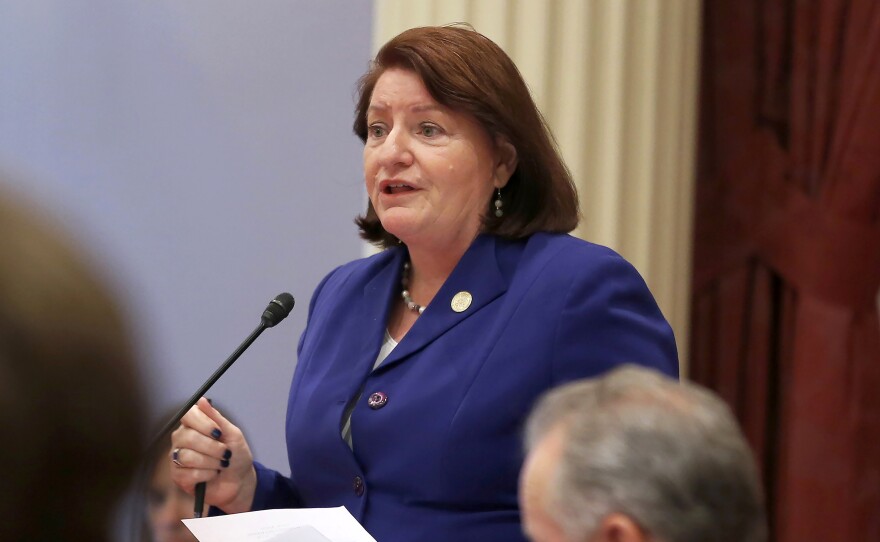When North Carolina in 2016 banned transgender people from using the bathroom of their gender identity in public buildings, California retaliated by banning state-funded travel to that state and any other state with laws it deemed discriminatory against LGBTQ people.
Seven years later, after a surge in anti-LGBTQ legislation in mostly Republican-led states, California now bans state-funded travel to nearly half of the country. The prohibition has caused travel hitches for state employees as well as academic researchers and sports teams at public colleges and universities, prompting state Senate leader Toni Atkins to call Wednesday for the travel ban to come to an end.
In its place, she wants the state to authorize a marketing campaign for “inclusive messaging” in those states “to help build a bridge of inclusion and acceptance.”
“The goal here is to speak to people's hearts and open minds,” said Atkins, who is a lesbian. “That's a pursuit that would have made teen Toni — that southwest Virginia girl afraid to be herself back then — so proud.”
California's travel ban has been in effect since 2017. It requires the state Attorney General to maintain a list of states subject to the ban. That list has grown quickly as states have passed laws restricting doctors from providing gender-affirming care to minors and stopping transgender women and girls from participating in school sports consistent with their gender identity.
Today, the ban includes 23 states: Alabama, Arizona, Arkansas, Florida, Georgia, Idaho, Indiana, Iowa, Kansas, Kentucky, Louisiana, Mississippi, Montana, North Carolina, North Dakota, Ohio, Oklahoma, South Carolina, South Dakota, Tennessee, Texas, Utah and West Virginia.
The law applies to state agencies, departments, boards, authorities and commissions — including the schools that are part of the University of California and the California State University systems.
That means schools like the University of California, Berkeley, can't use state money for their football teams to travel to away games in Arizona and Utah — schools it must play against because they are in the same athletic conference.
The San Diego State University men's basketball team will play in the Final Four on Saturday in Houston, a state that is on the no-travel list. The team got around the ban because the NCAA, not California taxpayers, is footing the bill for the team's travel. But the ban does mean the school can't schedule football games against teams in Texas, said Jamie McConeghy, senior associate athletic director of communications and media relations for San Diego State.
The law has a number of exceptions, including travel necessary to enforce California laws, meet contractual obligations or to obtain grant funding. It also allows travel for the protection of health and safety, which is why a state-funded security detail could travel with Gov. Gavin Newsom's family on a vacation to Montana last year.
The ban has also impeded academic researchers who often have to travel to other states for their work. The American Historical Association wrote a letter to lawmakers in 2021 asking them to amend the list of exceptions to include research for travel and educational initiatives.
Marc Stein, a history professor at San Francisco State University, said he had trouble booking a trip to North Carolina shortly after the travel ban took effect so he could research the case of a transgender woman who had been arrested for sodomy in the 1960s.
Stein said the university eventually found a way to fund his research, but said the barrier remains for other researchers, particularly students studying for advanced degrees.
“I think Ph.D. students in California are being discouraged from pursuing research projects that would require extensive trips to the list of states which is now almost half the country,” said Stein, who said he favors adding a broad exception to the law to cover academic research.
Still, overturning the ban could be difficult in the California Legislature, where 10% of lawmakers identify as LGBT Q.






